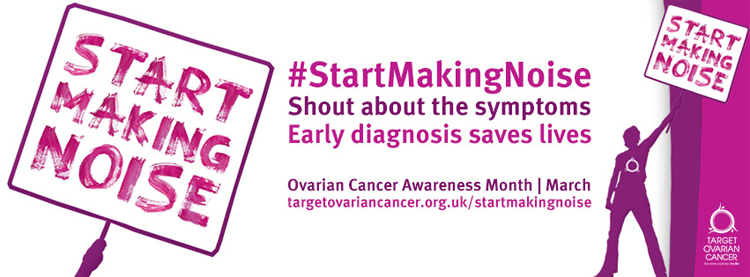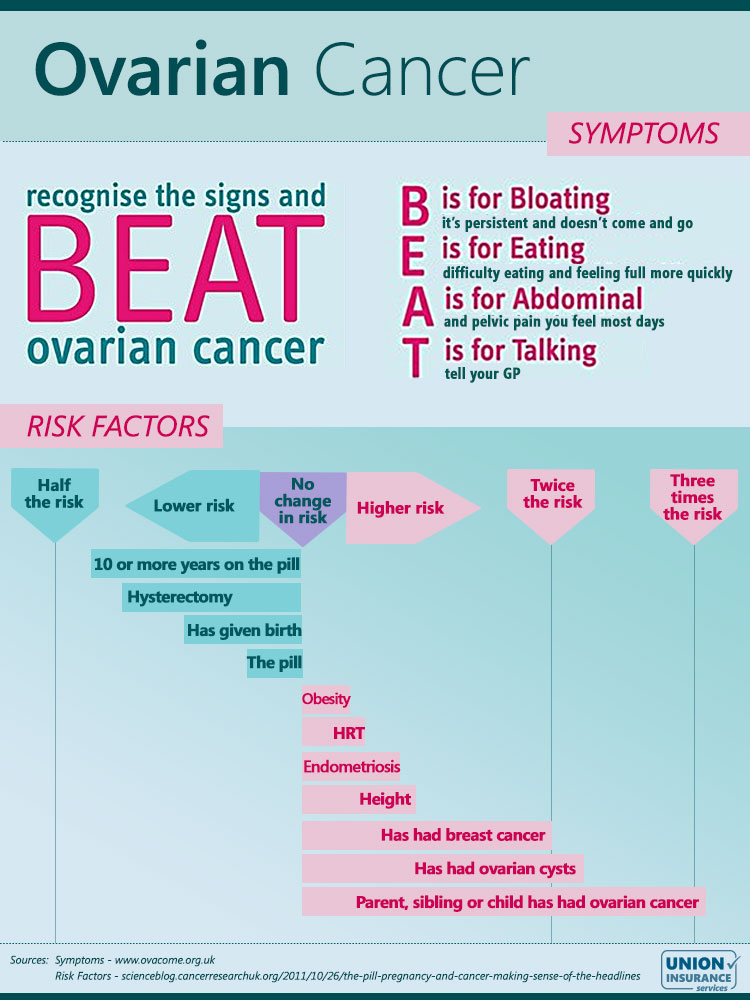The main type of ovarian cancer is called epithelial ovarian cancer. Although the exact cause is not known, there are certain things that increase the risk of developing it - including getting older, family history, being overweight, being tall, using talcum powder between the legs, and smoking. Over 8 in 10 cases occur in women who have gone through the menopause. You can read more details on the risk factors here.
Symptoms of Ovarian Cancer
Ovarian cancer symptoms are quite vague and can be mistaken for general illness. The difference is if the symptoms are new, quite severe and don’t come and go. If you have any of the symptoms below happening on most days for 3 weeks or more, please visit your GP.
Stage 1 Ovarian Cancer Symptoms (cancer is completely inside the ovary)
- Pain in the lower abdomen or side
- Bloated, full feeling in the abdomen
Stage 2 and 3 Ovarian Cancer Symptoms (tumour is growing in the area between hip bones)
- Irregular periods or vaginal bleeding after menopause
- Lower tummy (abdominal) pain
- Back pain
- Passing urine more often than usual
- Constipation
- Pain during sex
- A swollen abdomen
- Feeling of fullness or loss of appetite
Stage 4 Ovarian Cancer Symptoms (cancer has spread to a distant body organ)
- Loss of appetite or a feeling of fullness in the abdomen
- Feeling or being sick
- Constipation
- Tiredness
- Shortness of breath
- Noticeable swelling of the abdomen
The campaign for this year’s Ovarian Cancer Awareness Month is called #StartMakingNoise – so please share this with your loved ones. Shout about the symptoms. Early diagnosis saves lives.
Brought to you by UNISONProtect who provide UNISON Female Cancer Cover.
Sources: http://www.cancerresearchuk.org/about-cancer/type/ovarian-cancer/about/ovarian-cancer-symptoms
http://www.cancerresearchuk.org/about-cancer/type/ovarian-cancer/about/ovarian-cancer-risks-and-causes









